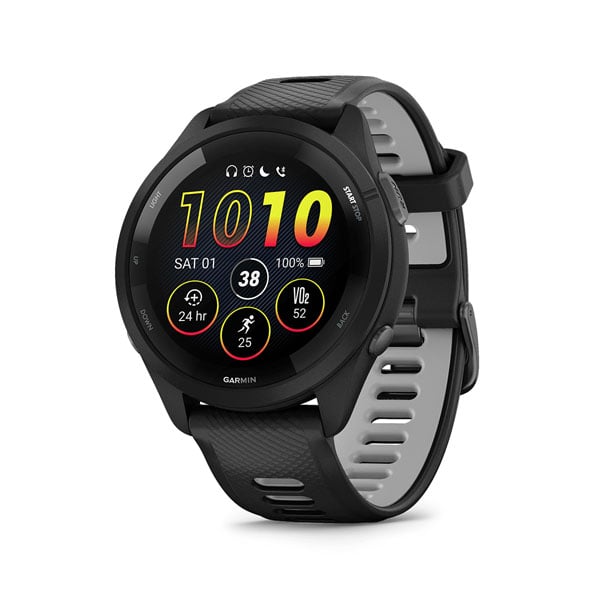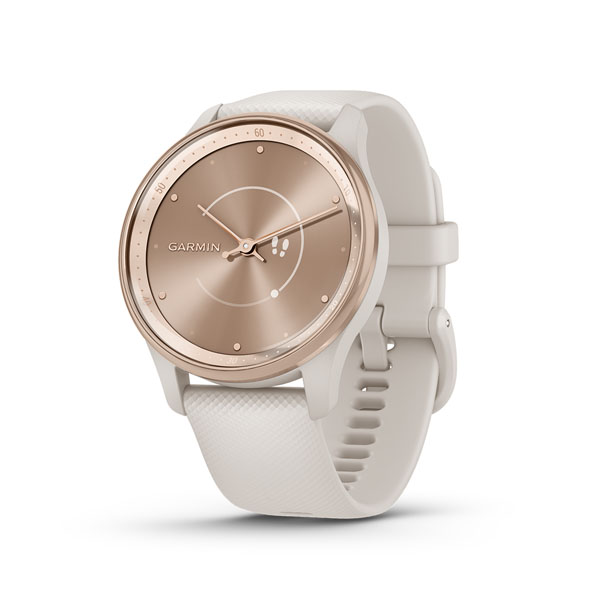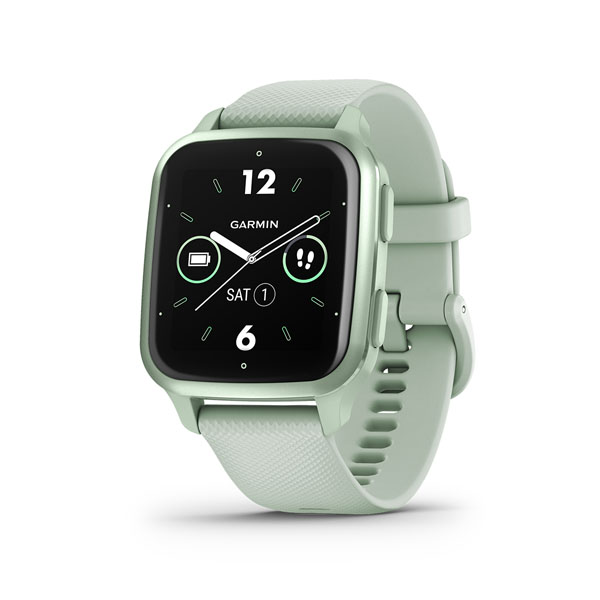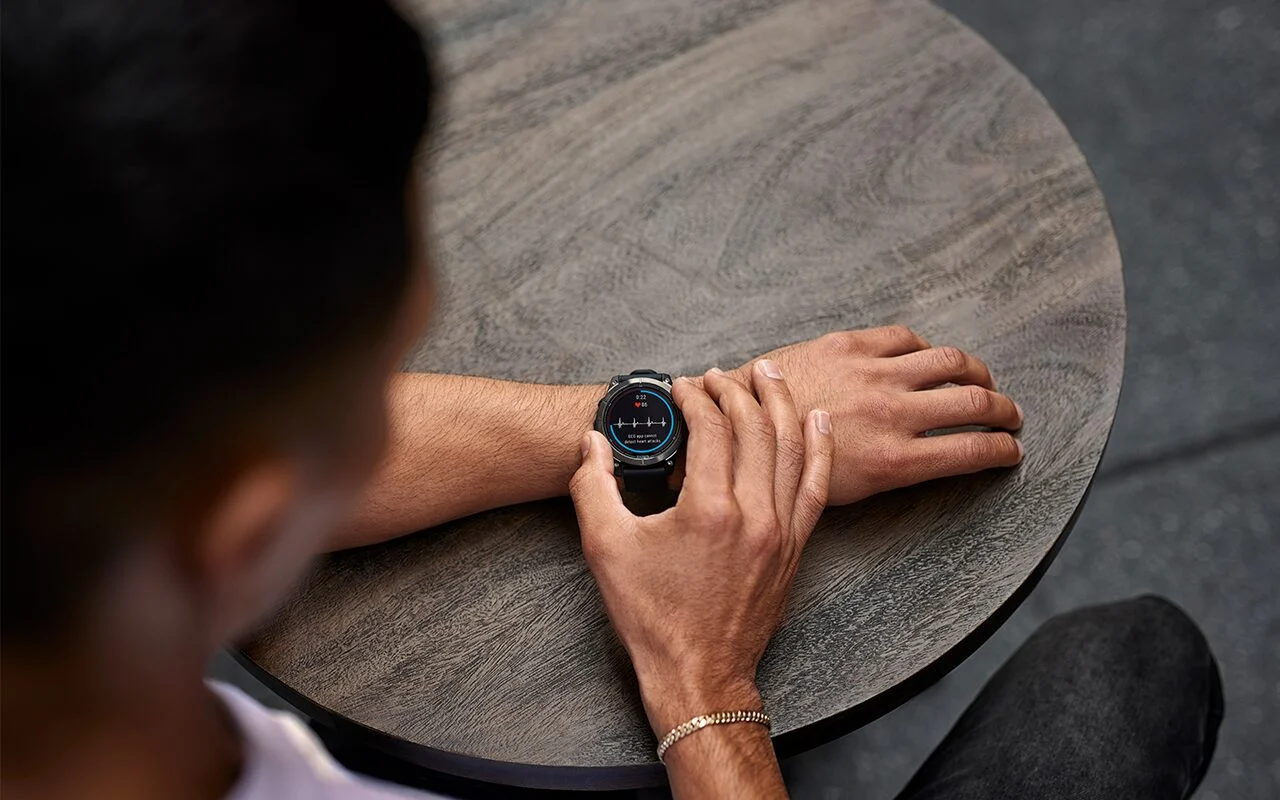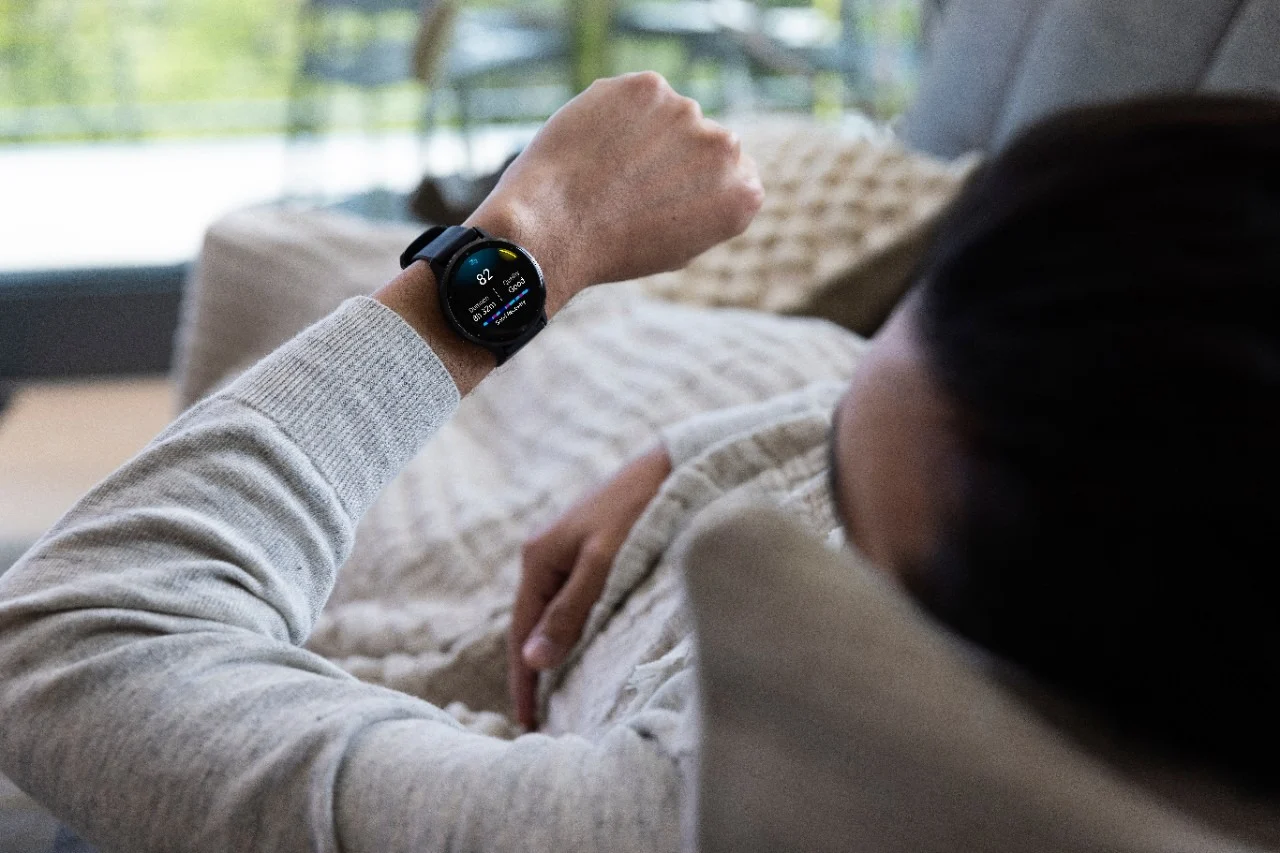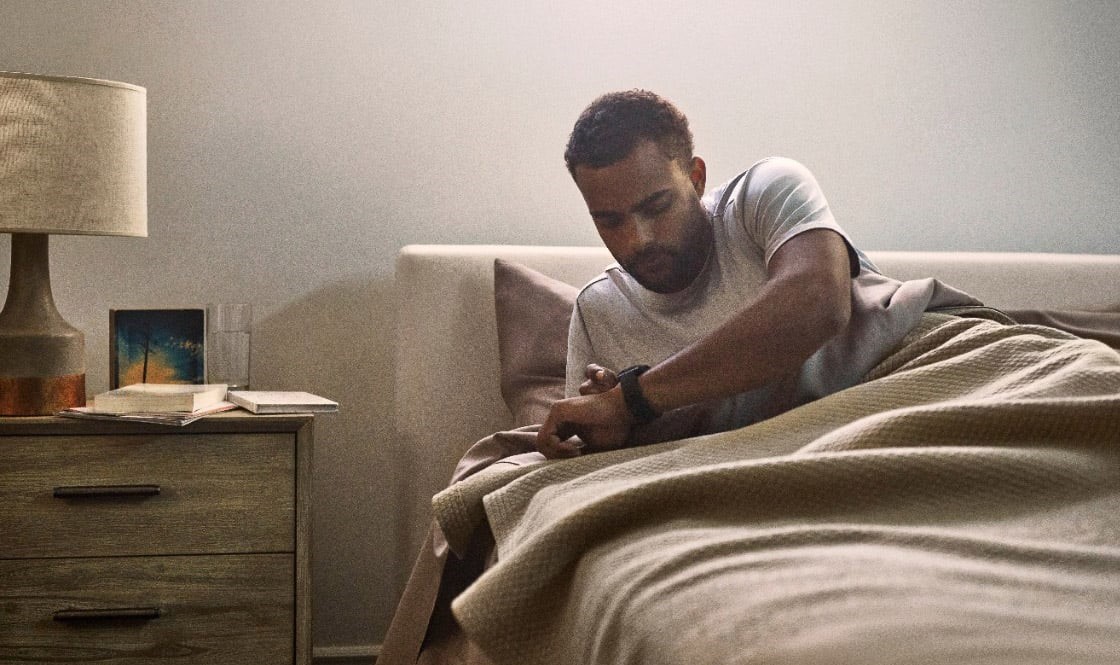
New Data Examines Quality of Garmin Users’ Sleep
Spoiler alert: Very few of you are getting excellent shut-eye.
Sleep is an essential bodily function that directly impacts both your mental and physical health. At this point, we all know we should be aiming for 7-9 hours each night — and we know how we feel when we cut ourselves short.
But correcting less-than-stellar habits is easier said than done, and knowing that you finally decided to put the phone on the nightstand at 11 p.m. and didn’t touch it again until 7 a.m. may not be sufficient information to analyze what actually happened in those 8 hours.
Here’s where your Garmin sleep score comes in. Powered by Firstbeat Analytics, our science-backed health data platform, your compatible Garmin watch (if you wear it while you sleep) with advanced sleep tracking will use your heart rate, heart rate variability, respiration rate, body movement and other important data to assign you a sleep score each night.
A number from 0-100, a high sleep score means you slept well and are ready to tackle the day. A low sleep score, on the other hand, may indicate that your day is going to be a struggle.
As is human nature, we like to know where we fit in. Are we sleeping better or worse than our peers? Below we’ll examine how well Garmin users slept in the fourth quarter — October, November and December — of 2022.
Average Sleep Score Quality
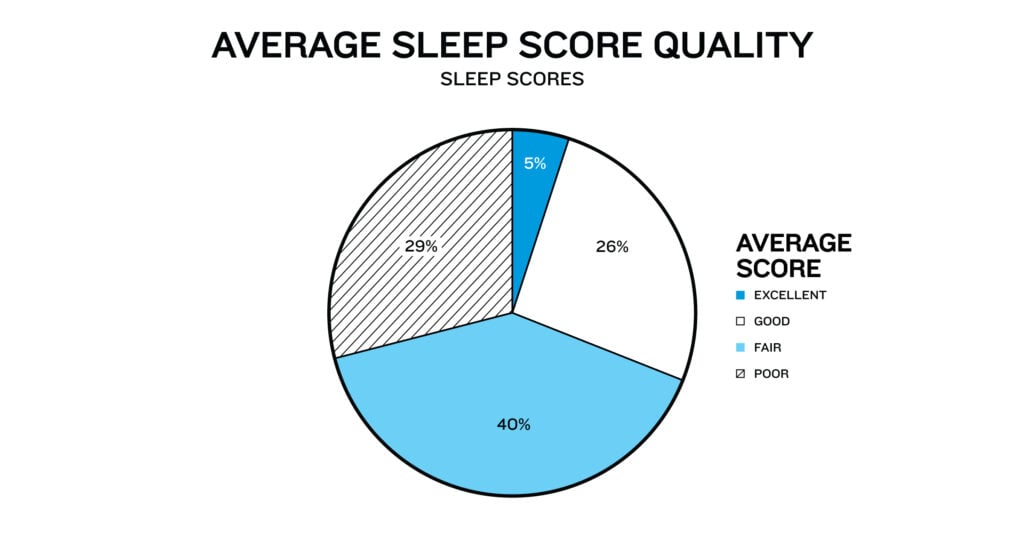
Each morning, you receive a sleep score on a scale of 0-100 that summarizes the previous night’s sleep.
Based on your score, you’re assigned a ranking: Excellent (90-100), Good (80-89), Fair (60-79) or Poor (0-60).
As you can see, scoring 90 or above is an achievement — and not many Garmin users are hitting it on a regular basis. Only 5 percent of Garmin users achieved an average sleep score in the Excellent category.
If you find yourself in the Fair category, it’s quite possible that you got good sleep most of the time, but a few restless nights threw you off.
And if you averaged a sleep score below 60 over that period of time, it may be wise to start looking at ways to improve your sleep.
Average Sleep Score by Age
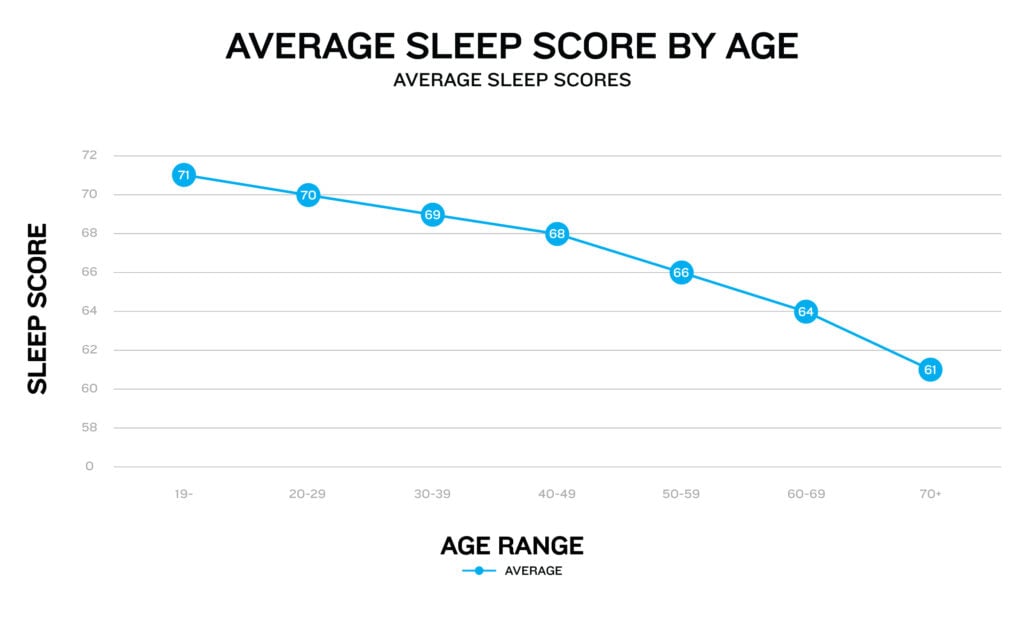
If youth is wasted on the young, let’s hope sleep isn’t.
It’s not news that your sleep quality declines as you grow older, but thanks to advanced sleep tracking on Garmin watches, you can now quantify just exactly how much you can expect that quality to drop.
The average sleep score for an adult in the 20-29 year old age range was 70, while it drops to 66 by ages 50-59 and anyone over 70 averages 61.
Average Sleep Score by Locale
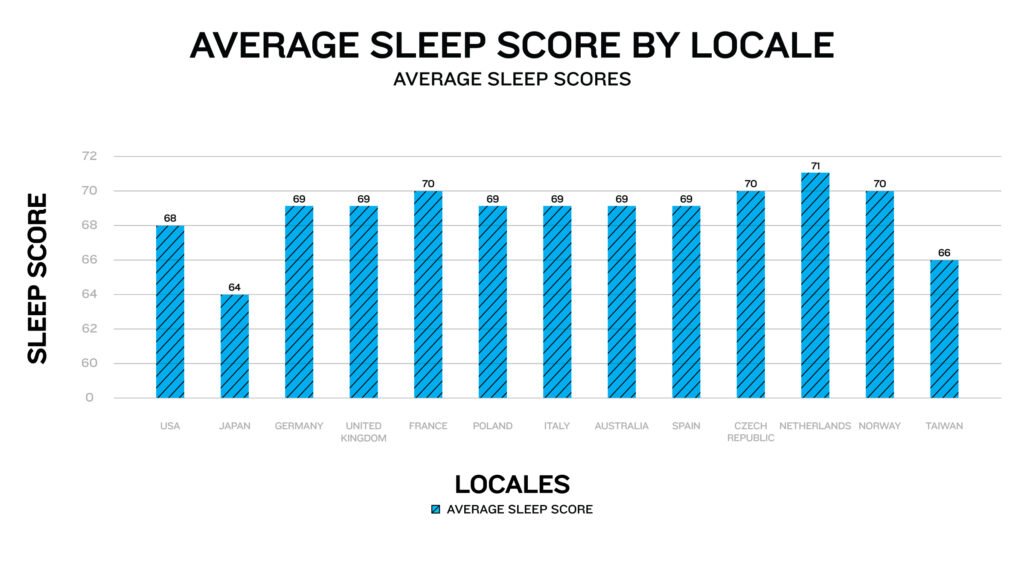
As a global company, we always like to look at how different areas stack up against each other.
We examined a few of the locales where users really love tracking their sleep scores, and the above results show how the averages compare.
And while not everything has to be a competition, we do wonder what the secret to superior sleep is in the Netherlands!
Average Sleep Score by Gender
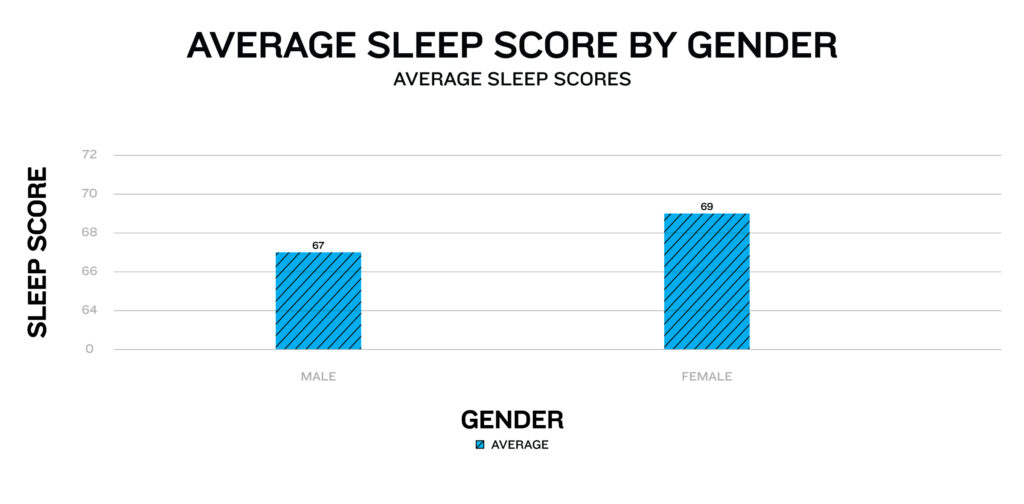
We’ll spare you any age-old tropes here about the battle of the sexes, but in looking at the data, it appears females are sleeping (just slightly) better than males on average.
Interested in learning more about how the features on Garmin smartwatches can help women specifically? Read this blog post.
Sleep Score and Hours Spent Sleeping
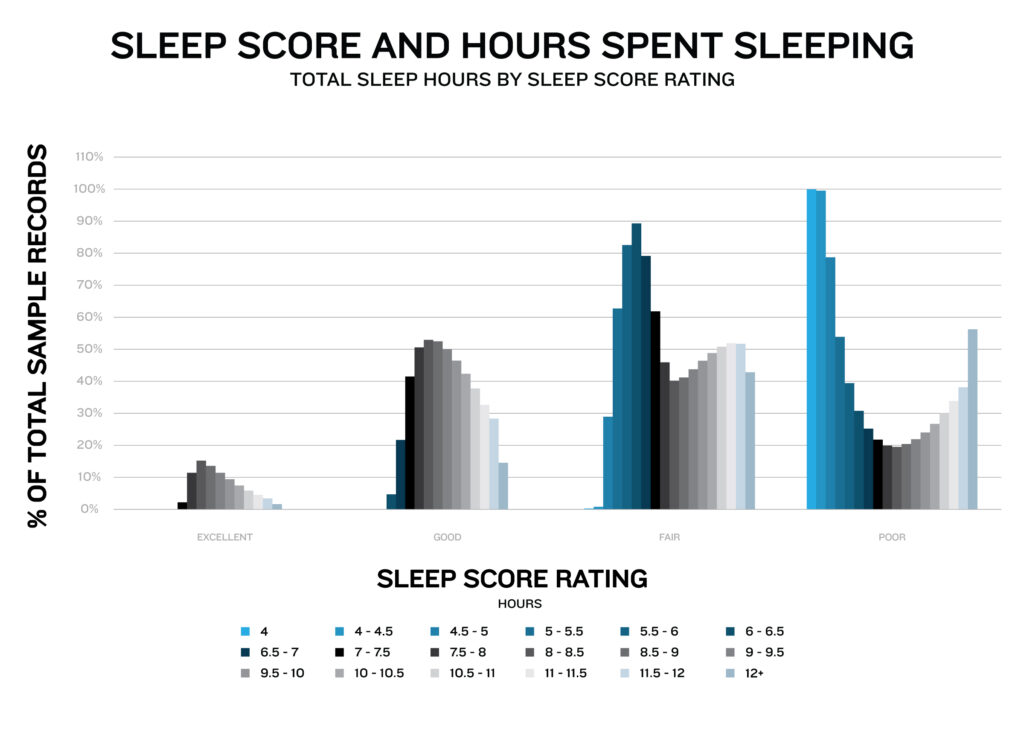
No surprises here — the more you sleep, the more likely you are to achieve a positive sleep score rating.
Garmin users who slept less than 5 hours had no shot at achieving a sleep score in the Good range, and certainly not Excellent.
Interestingly, though, sleeping too much can be a problem as well. Looking at the Poor scores, you can see that curve start to go back up once the user starts getting more than 9 hours of sleep.
And the Excellent scores, few though they may be, show that 8-8.5 hours really is that sweet spot.
Interested in seeing where you fit in? All it takes is a flick of the wrist.
After you get out of bed, click to the Sleep feature on your compatible smartwatch to see your sleep score, duration of sleep, amount of time spent in each sleep phase and even personalized insights about your night.
This writer’s Fair sleep score of 75, for example, comes with a note that last night’s sleep was “shorter than ideal, calm” — and the 11:54 p.m. sleep start time makes it pretty obvious where the mistake was made. Note taken.
Don’t have a compatible Garmin smartwatch? That’s an easy fix. Click here to take one simple step toward better sleep.
